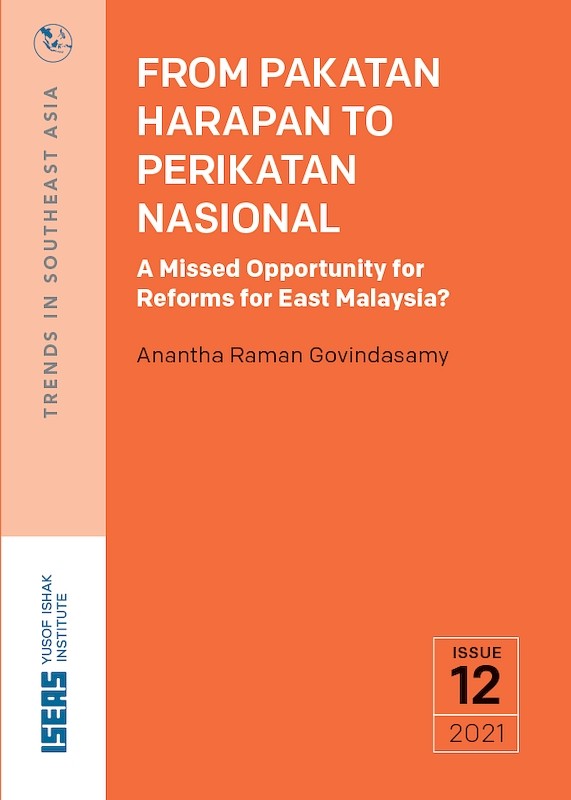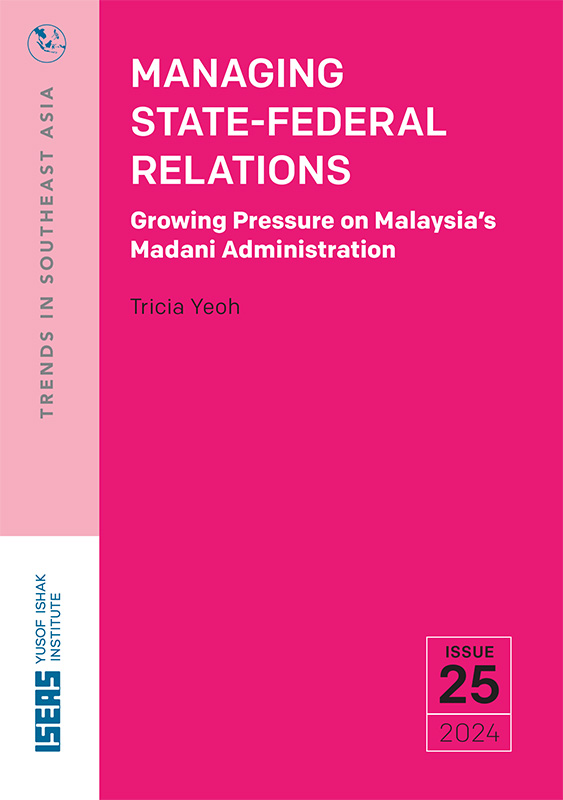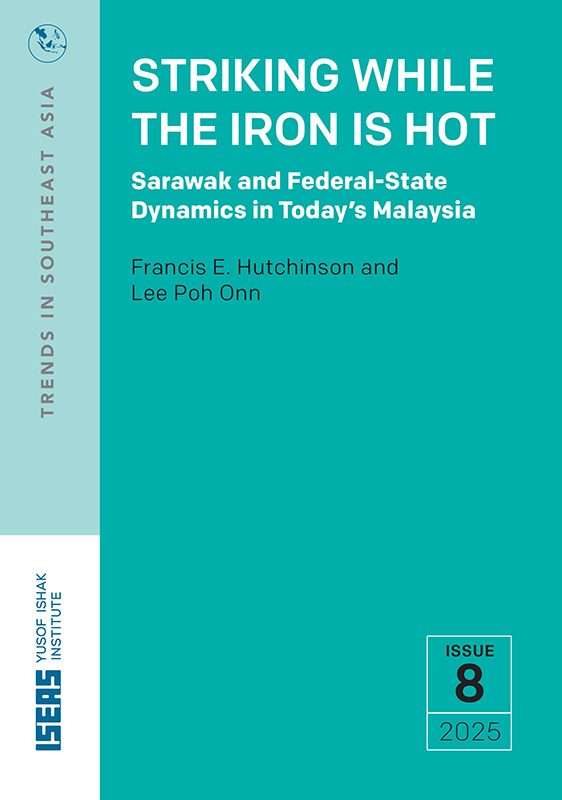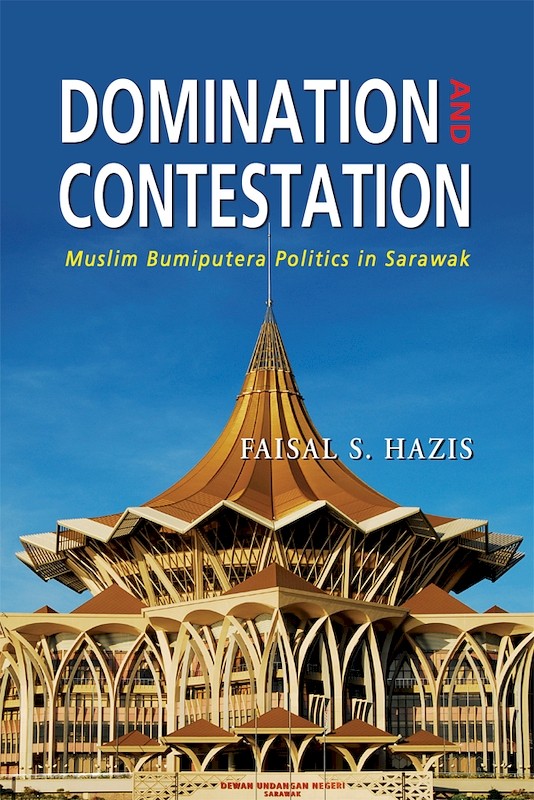Autonomy in Sarawak and Sabah: Different Paths and Diverging Outcomes
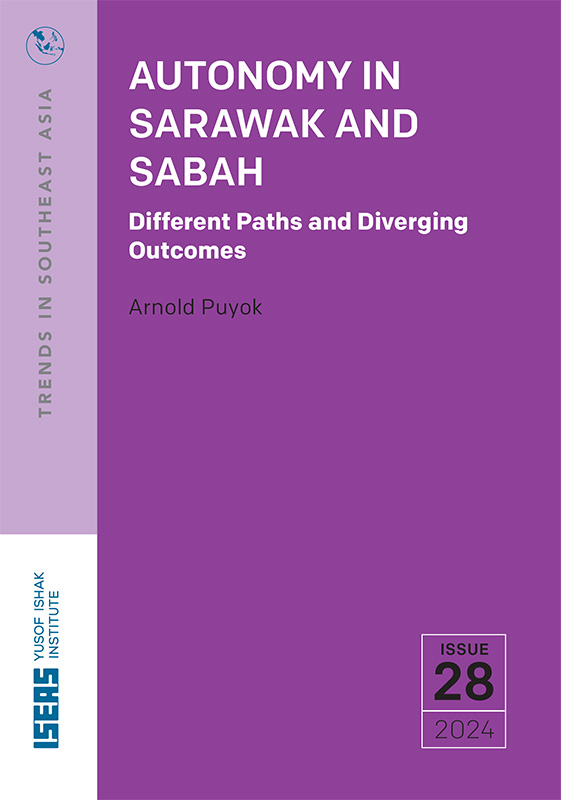
Arnold Puyok, author
Date of publication:
2024
Publisher:
ISEAS – Yusof Ishak Institute
Number of pages:
24
Code:
TRS28/24
Soft Cover
ISBN: 9789815306170
About the publication
When Malaysia was formed in 1963, the Borneo states of Sarawak and Sabah were granted special provisions under the Malaysian Agreement 1963 (MA63) to safeguard their autonomy.
However, centralization measures pursued by the federal government over time have eroded these rights, particularly pertaining to education, development spending and revenue sharing.
Despite being on the same island and sharing a history distinct from Peninsular Malaysia, Sarawak and Sabah have evolved very differently in asserting their autonomy. Sarawak has managed to attain a greater degree of self-government, while Sabah has been more influenced by priorities pursued by Peninsular Malaysia.
These varying outcomes are due to three differences between the two states: distinct historical developments in the run-up to independence; varying degrees of political control attained by the parties in power; and different priorities pursued by state leaders.
This Trends in Southeast Asia explores the different political trajectories of Sarawak and Sabah through a structured comparison of the two states across these three aspects. Sarawak’s combination of sub-nationalism, dominant state-level coalition, and astute political leadership has enabled the state to push the boundaries much further than its neighbour.
The downfall of the erstwhile-dominant Barisan Nasional coalition has increased the room for manoeuvre of Borneo-based groupings, heralding a new power relationship between West and East Malaysia. Sarawak is well-poised to push for further privileges and prerogatives. Should it want to push for more autonomy and resources, Sabah will need to emulate key aspects of its neighbour’s strategy.
Contents
-
Autonomy in Sarawak and Sabah: Different Paths and Diverging Outcomes
[Whole Publication, ISBN: 9789815306187], by Arnold Puyok, author

